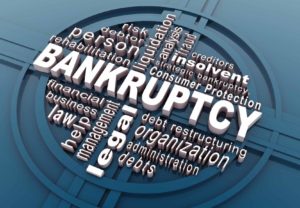On November 23, 2017, President Ram Nath Kovind gave his consent to an ordinance to amend the Insolvency and Bankruptcy Code (IBC). This ordinance will now be presented in the upcoming Winter Session of Parliament. The provisions of this ordinance are aimed towards preventing misuse of IBC by unscrupulous, undesirable persons.
Key Provision of the ordinance to amend the Insolvency and Bankruptcy Code (IBC):
Wilful defaulters, whose accounts have been classified as non-performing assets (NPAs) for one year or more and are unable to settle their overdue amounts including interest will be considered ineligible to be a ‘resolution applicant.’
- As per the official statement, sale of property to a person who is ineligible to be a resolution applicant has been barred and violations of this norm will attract fine ranging from Rs. 1 lakh to Rs. 2 crore.
- Those who have executed an enforceable guarantee in favour of a creditor, in respect of a corporate debtor have also been termed as ineligible to be a ‘resolution applicant’.
- Even promoters or those in management of control of the resolution applicant, have been included in the list of ineligible person to be a ‘resolution applicant’.
- The new sections to be added in the IBC through the ordinance not only restricts such persons to participate in the resolution or liquidation process, but also stipulates that Committee of Creditors (CoC) should ensure the viability and feasibility of the resolution plan before approving it.
- It has also been laid out that a resolution plan, which is yet to be approved, involves a resolution applicant who is not eligible as per the new norms, should be rejected by the CoC.
Quick Facts about Insolvency and Bankruptcy Code, 2016 (IBC):
- IBC is the bankruptcy law of India which provides a time-bound insolvency resolution process.
- It came into effect in December 2016.
- First insolvency resolution order under Insolvency and Bankruptcy Code, 2016 was passed in August 2017.
AffairsCloud Recommends Oliveboard Mock Test
AffairsCloud Ebook - Support Us to Grow
Govt Jobs by Category
Bank Jobs Notification



